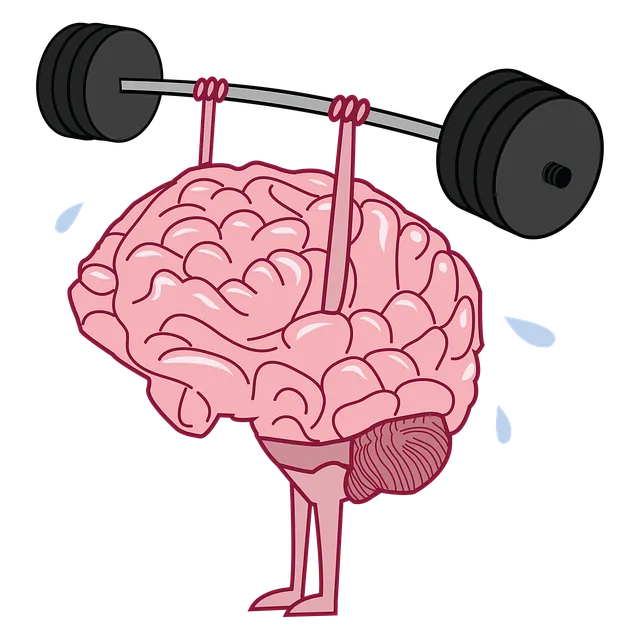The Kaiser Permanente mental health appointment center in Littleton is a leading provider of comprehensive, accessible mental healthcare for younger generations. Through multidisciplinary teams offering culturally competent care, educational workshops, support groups, and personalized treatment plans, the center empowers individuals to proactively manage their mental well-being. Their continuous improvement strategy, based on rigorous evaluation and participant feedback, ensures relevant and impactful programs like anxiety reduction workshops and public awareness campaigns, contributing to enhanced mental health outcomes in the community.
Mental health education programs play a pivotal role in fostering well-being within communities. Given the increasing recognition of mental health as a societal concern, particularly in today’s fast-paced world, understanding the design principles behind effective programs is paramount. This article explores the comprehensive model offered by Kaiser Permanente’s Mental Health Appointment Center in Littleton as a beacon for best practices. We delve into key components, strategic designs, implementation, and evaluation methods to guide the creation of impactful mental health education initiatives.
- Understanding the Need: Mental Health Awareness in Today's Society
- Kaiser Permanente Mental Health Appointment Center Littleton: A Model for Comprehensive Care
- Designing an Effective Education Program: Key Components and Strategies
- Implementation and Evaluation: Measuring Success and Continuous Improvement
Understanding the Need: Mental Health Awareness in Today's Society

In today’s society, mental health awareness is more crucial than ever before, as issues like anxiety, depression, and stress have become ubiquitous in daily life, particularly among younger generations. Organizations like Kaiser Permanente’s mental health appointment center in Littleton recognize this growing need to equip individuals with tools to manage their mental well-being. The increasing prevalence of mental health challenges highlights the importance of integrating education programs that foster understanding, empathy, and proactive coping strategies.
The design of such programs should focus on providing accessible Crisis Intervention Guidance, incorporating practices like Mindfulness Meditation to promote inner strength development. By addressing these concerns head-on, communities can create a more supportive environment where individuals feel empowered to seek help when needed, mirroring the comprehensive approach offered at Kaiser Permanente’s Littleton location.
Kaiser Permanente Mental Health Appointment Center Littleton: A Model for Comprehensive Care

The Kaiser Permanente Mental Health Appointment Center in Littleton serves as a standout model for comprehensive mental health care. This innovative center integrates various services under one roof, offering a holistic approach to addressing patients’ psychological needs. By combining clinical therapy, support groups, and educational workshops, the facility empowers individuals to enhance their emotional regulation skills and develop coping strategies tailored to their unique circumstances.
The program’s success lies in its multidisciplinary team, comprising psychiatrists, psychologists, social workers, and caregivers, all dedicated to providing culturally competent care. They facilitate Healthcare Provider Cultural Competency Training, ensuring staff are equipped to address the diverse mental health needs of a broad patient population. This inclusive approach not only benefits patients but also fosters a deeper understanding of emotional well-being, promoting better outcomes and improved quality of life for those seeking support at the Kaiser Permanente Mental Health Appointment Center Littleton.
Designing an Effective Education Program: Key Components and Strategies

Implementation and Evaluation: Measuring Success and Continuous Improvement

Implementing a mental health education program requires careful planning and evaluation to ensure its success and long-term impact. At the Kaiser Permanente Mental Health Appointment Center in Littleton, continuous improvement is at the core of their approach. They measure the effectiveness of their programs through various methods, including participant feedback, outcome assessments, and tracking key performance indicators (KPIs). By analyzing these metrics, they can identify areas for enhancement and adapt their strategies accordingly.
Regular evaluation allows the center to refine its offerings, ensuring that educational content remains relevant and impactful. This includes assessing the reach and engagement of Public Awareness Campaigns Development, evaluating the effectiveness of Emotional Intelligence workshops in reducing anxiety, and gauging the overall satisfaction and perceived benefits reported by participants. Such ongoing assessments foster a culture of continuous learning, ultimately contributing to improved mental health outcomes within the community.
Mental health education programs, as exemplified by the successful model at the Kaiser Permanente Mental Health Appointment Center in Littleton, play a pivotal role in enhancing overall well-being. By incorporating key components such as comprehensive care, evidence-based strategies, and continuous evaluation, these programs can effectively address the growing mental health needs of society. The approach used at Kaiser Permanente underscores the importance of accessible, holistic education to foster resilience and improve mental health outcomes for individuals and communities alike.



